My dad eased his pickup truck along the rolling sidehill, tracing the curves in the rows of hay stretching before us, the steering wheel wandering beneath his hand. The afternoon sun was high and warm. We could have fallen asleep beneath its affectionate glow, were it an afternoon lazy enough to let our family rest.
But it was not such an afternoon—for our family of farmers, few afternoons were. My dad threw the truck in park, and at just four years old, I knew this stop was important enough for me to jump out and tramp across the field behind him. He knelt alongside a row of hay he’d recently cut and felt the fallen alfalfa with his hands. Then he looked at the sky, pondering the weather that could either bless or curse his work.
It was a moment that showed me the spirituality of living close to the land, where the beauty of God’s creation, the risk of hardship, and the work that binds them together are always close at hand. This is a life familiar to generations of God’s people, including most of the Bible’s first hearers. Jesus spoke to crowds of farmers, people who could easily make sense of his parables of seeds and fields and failing crops. But this experience of faith lived close to the land, which I grew up with, is slipping away in our country today.
America drew its earliest economic strength from the natural resources of this vast land, but we are no longer a nation of farmers. From a height of nearly 6.5 million family farms, the United States has fewer than 2 million—often losing them at the rate of tens of thousands per year nationwide, according to federal data. In my home state of Wisconsin, we’re losing as many as three farms per day.
And closing or consolidating farms aren’t the only changes coming to America. Ranches and forests are falling to urban development and economic decline, and our population is steadily urbanizing, shifting from nearly 60 percent rural in the 1940s to just 14 percent rural in 2020.
This is not a culturally and spiritually neutral economic shift. For many of us, loss of life close to the land means loss of regular encounters with God’s creation. It means we are more likely to see the world God made on a small and merely recreational scale: in a tame public park instead of a woodland wild with life or a field furrowed with crops to come.
The spiritual effects may be most measurable in rural areas—where addiction is rampant and we see rising deaths of despair—but I see a connection too between this loss and our larger mental health crisis, as well as the deep political divisions between rural and urban Americans.
I also know my own faith would look very different were it not farm grown. When my dad crouched in that field, he was trying to decide how soon the hay would be dry enough to bale. And when he looked up at the sky, he was trying to decide how much time he might have to do it before the rain came. It was a moment of economic decision-making, but it was also inextricable from his connection to creation and our Creator.
This and countless other moments shaped my faith. I grew up Catholic, though our family also attended nondenominational churches at various times. But whatever our church home, I had constant lessons in faith on our land.
related
As a kid, I was sure my dad could divine the weather. This is laughable to any grown farmer, but it led me to pay attention—to see, like the psalmist, God’s work in the water, clouds, and thunder (Psalm 77:16–19). Working sunup to sundown with my dad was a kind of discipleship, training me in diligence, determination, and dedication. Seeing seeds planted in the spring sprout as alfalfa and corn showed me God’s miracles every harvest. Living with animals taught me that the circle of life—from newborn calves taking their first breath, to dear old dogs taking their last—can point our eyes toward heaven if we let it.
My faith was both tested and confirmed on the farm when I was 14. One morning, my dad woke up to severe bleeding. Operations to address what we thought were digestive issues later turned up cancer.
With my dad sick and undergoing treatment, I rose every morning before the sun. Working alongside a family friend who came to milk our cows and perform the tasks a boy of 14 couldn’t do on his own, I prepared the cows and equipment for milking, cleaned their udders, and helped milk when I got far enough ahead. Then I’d do all the other chores: feeding the livestock, cleaning the barn, leaping from the tractor to the ground and back for one job after another. I’d be back at it in the evening, with school in between.
Along the way, friends from church were the hands of Christ to our family. They dropped off meals, told me what a blessing my work was to my father when they saw the fear and fatigue in my eyes, and rang from house to house with prayer chains. On and on, they taught me a lesson about prayer that has stuck ever since, through times of waxing and waning faith alike. And one day, my dad came back.
These days, I split my time between my family’s farm in Wisconsin and northern California, where my wife’s family lives. I know most people will never become farmers, and though a plurality of Americans say they’d prefer to live in a rural area, they may not be able to move there.
But that doesn’t mean we must be cut off from the land and its revelation of God as Creator. We can teach our children where their food comes from and introduce them to creation in America’s remaining farmland, rural communities, and outdoor places.
My wife and I had a little girl earlier this year. She’s a happy baby who, I’m grateful to say, seems to take after her mother, with watchful eyes and a ready smile. I think a lot about how to teach her what she’ll need to know—about God, about the world, about how to live—and how much she’ll learn rumbling over her grandpa’s fields in a pickup truck.
Brian Reisinger grew up working with his father from the time he could walk. He is the author of Land Rich, Cash Poor and can be found at brian-reisinger.com.
This article is partially adapted from Brian Reisinger’s book, Land Rich, Cash Poor: My Family’s Hope and the Untold History of the Disappearing American Farmer.
The post Faith Lived Close to the Land appeared first on Christianity Today.



